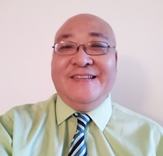From the NCTE Standing Committee on Global Citizenship
This post was written by NCTE member Heerak Kim, a member of the NCTE Standing Committee on Global Citizenship.
“History, despite its wrenching pain, cannot be unlived, but if faced with courage, need not be lived again.” These words by Maya Angelou are applicable for us during the COVID-19 global pandemic, as variants Delta and Omicron are infecting a record number of Americans daily, with more than one million new COVID-19 cases being reported per day in January 2022.
The United States has seen over 800,000 people die from COVID-19 in the last two years. Globally, COVID-19 deaths are in the millions in the same two-year period. The last two years are now a part of our history. Remembering the high number of people dying around the world in the last two years causes wrenching pain that cannot be unlived. But the history of the last two years can be faced with courage and we can contribute to global citizenship in positive ways by reflecting on this history.
English and literature classes from preK to PhD programs throughout the US can provide a way to reflect on our significant history of the past two years during the COVID-19 pandemic and can contribute to helping to create a better positive future based on this awareness of history.
Projects to Help Us Reflect on the Past Two Years
I propose two projects for English and literature classes to achieve this goal. One project is recording personal experiences of COVID-19 to share as global citizens. The second project is studying the past history of pandemics and reflecting on it as global citizens.
Creating a project writing about personal experiences during the COVID-19 global pandemic is a way to participate in active global citizenship. Autobiographies and memoirs provide an insight into a person’s life as well as into the person’s culture and history. This is evident in the collection of autobiographies edited by Ariel Raimundo Choi, Korean-American Stories: Collection of Autobiographies (2011).
English language arts teachers and college English instructors can offer a project in which all the students in the class write about their personal experiences during the pandemic and publish it either traditionally in a book form or on the internet to share with the rest of the world. Teachers can create a joint project with teachers from other countries via the internet and pair up every student in the class with a student in the partner class in another country, so that students have “pen pals” with whom to share experiences during the writing project, which could extend over weeks or even months. This project will allow students to understand that sharing personal experiences in written form is a part of being a global citizen.
Another project that English and literature teachers can facilitate in their classrooms is studying the history of pandemics and reflecting on it collectively as a class. The classroom can be structured to study various global pandemics, such as the Black Plague in the Middle Ages, the Small Pox pandemic among the First Americans in early modern history, the flu pandemic of 1918 during the time of World War 1, or any other pandemics throughout world history.
The class project would include research into the chosen past pandemic, in which students would engage in research regarding the pandemic and its impact on individuals, families, the economy, educational institutions, society, religion, and culture. Students then prepare an oral presentation on their research using multimedia in a video, a PowerPoint presentation, a performance, or another format. The oral class presentation will have two components: discussion of the research and reflection on how the research sheds light on the current pandemic. This could be done on individual or group levels. Students will receive feedback from other classmates in the class as a type of peer review process. Then students will engage in the revision process based on peer feedback. The final project can be submitted in video, audio, or written format. Final projects will be collected and organized by students into a collection to be published on the web. This is a project that will help students engage in multicultural education in terms of understanding the experiences of others as well as highlighting the importance of sharing one’s reflections with others around the world as part of being a global citizen.
English teachers from pre-kindergarten to 12th grade as well as college teachers can proactively participate in global citizenship leadership through their classrooms and help their students to be effective global citizens during the COVID-19 pandemic. And this intellectual and multicultural educational experience can help to create a better future for our world.
 Heerak Kim is the author of Bat Yam: A Novel and Jewish and Indian and Other Stories. Heerak is currently writing his EdD dissertation at the American College of Education on improving urban education through effective principal clinical supervision of teachers.
Heerak Kim is the author of Bat Yam: A Novel and Jewish and Indian and Other Stories. Heerak is currently writing his EdD dissertation at the American College of Education on improving urban education through effective principal clinical supervision of teachers.
The Standing Committee on Global Citizenship works to identify and address issues of broad concern to NCTE members interested in promoting global citizenship and connections across global contexts within the Council and within members’ teaching contexts.
It is the policy of NCTE in all publications, including the Literacy & NCTE blog, to provide a forum for the open discussion of ideas concerning the content and the teaching of English and the language arts. Publicity accorded to any particular point of view does not imply endorsement by the Executive Committee, the Board of Directors, the staff, or the membership at large, except in announcements of policy, where such endorsement is clearly specified.

